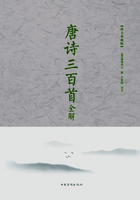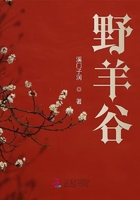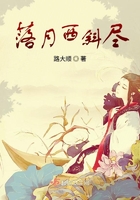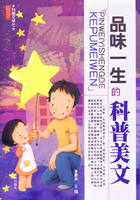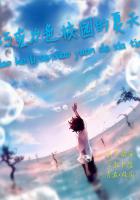For the Pleasure of the Palate:Avarice and Atrocity in Hocus Pocus
“Of all forms of intensive[animal]farming now practiced, the vealindustry ranks as the most morally repugnant”,remarks Peter Singer in Animal Liberation(129)。 He points out that although veal consumption cannot compare in size and scale with poultry, beef, or pork, since this tender, pale-colored flesh costs much more highly and is served only to the patrons of expensive restaurants, the veal industry is worth our attention, because“it represents an extreme, both in the degree of exploitation to which it subjects the animals and in its absurd ineffciency as a method of providing people with nourishment”(1990:129)。Jim Mason and Mary Finelli give a condensed deion of the common practices in veal production:
In the US, every year about 750,000 calves—mostly males, who are of little use to the dairy industry—are taken from their mothers within a day of birth and turned into sickly, neurotic animals to provide the luxury-grade“milk-fed”veal preferred by gourmet cooks and fancy restaurants。 The young calves, stressed by separation from their mothers, are placed in narrow wooden stalls, lined up row on row in the confnement building。For between eighteen and twenty weeks, each calf is confned to a space scarcely larger than his own body, and is tied at the neck to restrict movement further。He is fed only“milk replacer,”a liquid mixture of dried milk products, starch, fats, sugar, antibiotics, and other additives。The milk replacer is defcient in iron to induce subclinical anemia—a necessary condition if the producer's calves are to have flesh white enough to fetch the market price for“prime”veal。No hay or other roughage is permitted, for that too might darken the fesh。Even the wooden stalls and neck chains are part of the plan, as these restrictions keep the calf from licking his own urine and feces to satisfy his craving for iron。(109-110)
This deion, however, covers only one of the twin aims of veal production claimed by Provimi, the oldest and largest veal producer inAmerica, namely, keeping the meat as light in color as possible。 The other aim is“to produce a calf of the greatest possible weight in the shortest possible time”(Singer 1990:130-1)。In order to meet this goal, the calf is not given water but only rich, milk replacer food, and the temperature of the shed is kept warm, so that the calf will constantly sweat。The thirsty animal has to eat more food than needed in order to get enough liquid, whereas overeating makes it sweat more, hence more thirsty。In such a malignant cycle, combined with the severe restriction of exercise(in the narrow stall, he cannot even stand up and lie down without diffculty, or turn around to groom himself, which is an innate desire for calves),the calf may weigh as much as four hundred pounds in sixteen weeks, as opposed to the ninety-odd pounds that newborn calves weigh(Singer 1990:130,135)。Obviously, the economic proft is tremendous, but it is won on top of unbearable pain and suffering of the young calf。Most outrageous of all, all this suffering is unnecessary, as the light-colored fesh, except for its tenderness in texture, does not offer the human eater any more nutrition than the red meat。Indeed, it is only fesh from an unhappy, unhealthy animal。The essence of the demand for such fesh, therefore, is nothing but“a matter of snob appeal”(Singer 1990:133)。
The method of raising veal calves on tether and milk replacer was introduced to the United States in 1962. By the 1980s, a strong animal welfare movement concerning veal was started, with the release of photographs of veal calves tethered in crates where they could barely move。Under the pressure of public criticism, a federal U。S。bill entitled Veal Calf Protection Act(H。R。84)was introduced in 1989 and then reintroduced(H。R。2346)in 1990.The bill set restrictions on housing, diet, and antibiotic usage in the veal industry。However, the passage of both bills failed due to lack of congressional support。Still the public became aware of the issues through effective media campaigns。
In Hocus Pocus(1990),there is an account of beef production and it is remarkably similar to the quotation of Mason and Finelli。 The account is given when the narrator-protagonist's newly-found illegitimate son, Rob Roy, talks with the protagonist about his stepfather, a very rich meat packer。Rob Roy tells the protagonist that the stepfather has been very good to him, but there is one thing that he doesn't like about him—the way he raises calves for veal:
The baby animals, scarcely out of the womb, were put in cages so cramped that they could hardly move, to make their muscles nice and tender。 When they were big enough their throats were cut, and they had never run or jumped or made friends, or done anything that might have made life a worthwhile experience。(HP 310)
Short and ****** as the passage is, it is clearly of the same effect as that of Mason and Finelli's, or even more。 While the scholar and activist try to sound neutral and objective so as not to be accused of sentimentality, a common charge against animal welfare advocates, the narrator of the story makes good use of the poetic license to imagine, elaborate, and sentimentalize, evoking pathos and sympathy for the young animal, particularly by emphasizing its pure innocence, utter helplessness, and the deprivation of an enjoyable and meaningful life。More significantly, the calves are not treated as“dumb beasts”,but living creatures with feelings, motives, and a sense of future。For Rob Roy and the narrator, their greatest loss is not life itself, but the possibility to“run or jump or make friends, or do anything that might make life a worthwhile experience”,which is what life means for human beings, too。Here implies Vonnegut's belief that animals, like humans, are entitled to and capable of enjoying life that is meaningful to them。
Rob Roy is a pathetic character himself and one of compassion。 Conceived during a casual spree during the Vietnam War between thenarrator-protagonist and a journalist, Roy has never seen his biological father in the process of growing up。His mother died when he was four and he spent his life with his stepfather。When he inherits the big property from his stepfather, which is the worth of the meat packing business paid in gold bricks, he feels embarrassed and wants to give something back to Dubuque, Iowa, where he grows up and where the inherited money is made。He founds and runs a free child-care center at his own expense, to help take care of the children of the many single parents and working-class couples who are unable to“feed and clothe their children halfway decently”。Unfortunately, two weeks after he opens the center, he was arrested for child molestation。The accusation is later proved false by court, but by then he has already been held in jail without bail for three months(HP 306)。For a young man of such experiences, it is not surprising that Rob Roy cannot accept the cruelty done to the young calf。He might as well have compared himself to the young animals, who are taken away from their mother soon after birth。Is it right, he may wonder, for humans to infict so much pain and suffering upon the calves, just for the sake of taste?
For the narrator-protagonist, the exploitation of the calves bears more complex meaning。 He evidently agrees with Rob Roy。Following the narration of the cruelty quoted above, in a separate one-line paragraph, a question is posed,“What was their crime?”(HP 310)Read in a normal tone, the question is directed singularly to the case of the calves captivated and deprived of any joy of life。It points to the lacking of moral remorse in the practice and reveals its nature of injustice and inhumanity。On a second reading, giving special stress to“their”,the question may implicate a comparison of the calves to people:the black criminals kept in the prison where he teaches, the Vietnamese he has killed in the Vietnam War, and even including he himself who is also roughly manipulated by people of power and money。
It is important to note that the account about the meat packer's calfraising is not in quotation marks。 So it is not clear who gives the account。It is supposed to be Rob Roy, because the account is in the same passage of his talk about his stepfather, following immediately the sentence,“Rob Roy said that the only thing he didn't like about him was the way he raised calves for veal”。But by putting it in a reporting indirect speech, the narrator, we may infer, has reorganized the ideas and there is implied consent on his part about the content of the speech。
If the consent is only implied in the report of the account, it is explicit in the question:“What was their crime?”According to the“editor's note”at the beginning of the book, the author of the book writes his thoughts in scraps of paper he can get hold of。 So the passages are separated by unconventional lines, which actually indicates where one scrap ends and the next begins(HP vii)。As the question is in a separate one-line paragraph and without the indicators of speaker such as“Rob Roy said”,which both the paragraphs above and below the question have, the question is presumably the thought of the narrator。If the black convicts and he himself have indeed done something wrong and deserve the punishment they are given, he might be wondering, what wrong have the poor calves done that can justify the suffering they are made to endure?
Eugene Debs Hartke, the name of the narrator-protagonist, is a prisoner when he writes the book。 By the time Rob Roy turns up, his story is already near its end。He has recounted, albeit in an erratic, non-chronological way, all the events he has gone through:an embarrassing exhibit at a High School Science Fair, where he and his father are caught as frauds;the accidental enrollment into West Point, which turns him into a professional soldier and“would have killed Jesus Christ Himself[……]if ordered by a superior officer”(HP 2);the bloody, sickening experiences in the Vietnam War, which for him is“about nothing but the ammunition business”,and yet thousands of soldiers have to be continually“fed into the meat grinder”for its sake(HP 154)。
He was a Lieutenant Colonel duringthe war, the“mastermind”behind a lot of brutal acts, which“still bothers me”(HP 153)。After the war, as a result of an accidental encounter with Sam Wakefeld, the same man that puts him into West Point, he takes on a job teaching physics at Tarkington College in Scipio, New York, where the students are all from very famous and wealthy families but have learning disabilities or are“plain stupid or comatose or whatever”(HP 18)。While teaching at Tarkington, he patiently looks after his crazy mother-in-law at frst and then his crazy wife as well, both of whom are hit by the hereditary insanity running in the family。After ffteen uneventful years, he gets fred without warning by the college because of his“discouraging”teachings of American history and politics and his behavior as“a shameless *****erer”(HP 149)。He then gets a teaching job at the Athena prison across the lake from the college。He teaches the prisoners, all of whom are blacks, for eight years until the sudden mass prison break and the ensuing fve-day Battle of Scipio。Hartke is made first Brigadier General of the National Guard when the insurrection is put down and then Warden when the college is turned into a prison。But shortly after that, he is arrested for“the crime of insurrection”(HP 317),and is imprisoned in his own prison, the former college where he taught for 15 years。
In the vicissitude of his life, Hartke has seen and heard of enough atrocity and absurdity。 The question“what was their crime?”may have been asked again and again in his life。The severed head of a bearded old man pillowed in the spilled guts of a water buffalo on the edge of a Cambodia village(HP 46,125,205-6),the Vietnamese woman, her mother, and her baby killed by him with a grenade while hiding in a tunnel, the brutal murder of Bruce Bergeron, a nice young man and homosexual, being strangled with his own belt and with a hundred stab wounds in a motel room(HP 145),and the Japanese survivors of Hiroshima atomic bombing, walking like shadows with their skins hanging on their exposed muscles and bones like draperies(HP 243),all of these and many moreare demanding explanations for their happening。His own ups and downs, too, are never results of his own free will, but by the force of chances。
The reasons the wealthy Trustees of Tarkington College provide for his dismissal are groundless and arbitrary, based on recordings taken out of the context。The explanation for his sudden arrest after the prison break is equally out of thin air。When Hartke inquires his former friend,“Does this make any sense to you?What is this happening?”,General Florio, the one who frst makes him Brigadier General and then comes to arrest him, doesn't even bother with a serious answer,“Some serious ambitious young Prosecutor[……]thinks you'll make good TV”(HP 317)。Therefore, like the calves raised for veal, his life and the lives of many others are simply toys and playthings to add fun and favor for the people in power and fortune, only that the way these people play with them could be very cruel。
As a matter of fact, Hartke does make an explicit analogy between the calves and humans。 When he hears the abhorring suicide of Hiroshi Matsumoto, the Japanese Warden of the Athena prison, disemboweling himself with a knife“in a ritual of self-loathing once practiced by humiliated members of the samurai, the ancient caste of professional soldiers”,Hartke is shocked hard。The image that arises in his mind is the veal calf:“He has never killed anybody and had the *** life of a calf kept alive for its veal alone”(HP 322)。For Hartke, the Warden and the calf are the most innocent beings and the least to deserve brutal handling。Yet they both have to sacrifce their lives, the calf for the delicate taste of the eater, the Warden for the sin his people have committed in Nanking and the horror he has witnessed as a boy in the Hiroshima atomic bombing。
Besides the veal calf, there is another image in the novel that suggests the luxury of taste at the cost of animal suffering—the lobster boiled alive。 The lobster image is one of the many iterative images that provide the erratic narrative with an underlying structure and emotional consistency。Itrecurs three times in the narration:in Chapter 12,15,and 21(HP 100,130,170)。Its intended prominence is obvious。
The lobster image frst appears when Hartke is on his way to Samoza Hall, where, unknown yet to him, he is to be cross investigated by the Board of Trustee of the college, backed up by recordings of his speech and conversations surreptitiously taken by the daughter of Jason Wilder, a celebrated conservative newspaper columnist and television talk-show host。 Anxious about what will happen to him, Hartke makes a note that he meets only two people on his way and explains, with unusual detail,“The seniors and their families and the rest of the faculty were having lunch in the Pavilion。Everybody got a lobster which had been boiled alive”(HP100)。In the ten chapters that follow(chapters 12-22),the narrator recounts, with much digression, how the Board of Trustee, under the guiding infuence of Jason Wilder, question him on his thinking and private life and fnally fre him, disregarding his plea for consideration of his devoted teaching and the good opinions from most students and faculty。In Chapter 22,he is out of Samoza Hall。Again he meets two people, separately。One is his best friend Damon Stern, a history professor;the other is Andrea Wakefeld, wife of Sam Wakefeld, the man who gets him to West Point frst and Tarkington College later and who commits suicide years ago。Hartke does not tell either of them about his dismissal。Instead, he diverts to the topic of lobster again:“Practically everybody else was eating lobsters。”Andrea comes up to him and asks why he is not eating lobster。
“Not hungry,”I said。
“I can't stand it that they're boiled alive,”she said。“You know what Damon Stern just told me?”
“I'm sure it was interesting,”I said。
“During the reign of Henry the 8th of England,”she said,“counterfeiters were boiled alive。”
“Show biz,”I said。“Were they boiled alive in public?”
“He didn't say,”she said。“And what are you doing here?”
“Enjoying the sunshine,”I said。(HP170)
In his characteristic laconic style of conversation which resembles that of Hemingway, Kurt Vonnegut vividly portrays a character trying to cover his desperation。 Hartke needs the job。He is already ffty-one and has two crazy dependents to look after。The symmetric reference to the lobster feast, before and after his dismissal, is then both literal and symbolic。Literally, by emphasizing repeatedly the fact that the lobsters are boiled alive, he addresses a contemporary animal welfare issue, just like that of the veal calf, that is, is it humane to cook lobsters alive?Symbolically, he might as well be thinking about himself as lobsters boiled alive by the Trustees。
Lobsters used to be the food of poor families on the coast when the immigrants frst came to the continent。 So it was associated with low status and distain。But over the centuries, its value plummeted and“the poor man's chicken became the rich man's prize”by the end of the 19th century。With the over-harvesting of the lobster beds, this crustanean became more and more the food of the elite。It is commonly known that lobsters taste better when cooked alive, and people used to think that lobsters, as a crustacean, do not have a nervous system to feel pain。Nevertheless, in the 1970s, Dr。John Baker(1900—1984),zoologist at the University of Oxford, stated that Crustacea had highly developed sensory organs and complex nervous systems, and their nervous cells were very similar to that of the humans(Singer 1990:174)。These discoveries made people believe that lobsters can feel pain。In Animal Liberation, Peter Singer introduced Dr。Baker's experiments which showed that the standard method of killing lobsters—dropping them alive into boiling water—could cause pain for as long as two minutes(Singer 1990:174)。With such discoveries and the debate that ensued about the moral standing in the practice, there wasSee webpage http://homecooking。about。com/od/foodhistory/a/lobsterhistory。htm。
growing sensibility in America over the practice of cooking lobster alive。
In the selection of lobsters being cooked alive as one of the leading recurrent motifs, we can see Vonnegut's awareness of the contention over the creature。 As a matter of fact, this is not his frst time to talk about lobsters being boiled alive。In Galapagos(1985),a novel about human survival on the isolated islands in the Pacifc Ocean, Vonnegut has a character make up a science fction in which the lobsters become the dominant species on the planet, ****** a mess of everything by following the human way, simply because“they hadn't wanted to be boiled alive anymore”(G 184)。Four years later, he picked up the image again and made it one of the leading recurrent motifs。When Hartke says,“practically everybody else was eating lobsters”,he projects a scene of carnival in which people are feasting on the pathetic animals like a fock of ravenous predators, showing no concern at all for the pain of the writhing creatures in the pot。In another instance where the lobster image is used, he actually has Hartke threaten his students by saying:“anybody who believed in the possibility of perpetual motion should be boiled alive like a lobster”(HP 130)。The threat is made jokingly for sure, but it is illustrative of how Vonnegut is disgusted at the practice, treating it as one of the cruelest ways of punishment。
That Vonnegut may have in consideration the animal welfare issue as a theme fnds proof in another instance。 Early in the book, the narrator recounts a story about Jack Patton, a Vietnam War comrade and brother-in-law who is killed in the war。While at high school, Patton wins a prize for ****** an electric chair for rats。People want him to stage a public demonstration of the chair with a tranquilized rat,“wanted him to shave the head of a groggy rat and strap it to the chair, and[……]ask it if it had any last words to say[……]”(HP 47)。However, the execution never took place。“There was enough common sense in Patton's high school, although not in the Science Department, apparently, to have such an event denounced as cruelty to dumb animals”(HP 47,emphasis added)。
In the symbolic order, Hartke's identification identified with the lobsters is not a very far-fetched interpretation。 When he asks Andrea,“Were they boiled alive in public?”he might have in mind his own inquisition by the Trustees only a while ago。Having the recordings of his fragmented speech and personal conversations played in front of the Board, accusing him of cynicism and indecency that belong to the other speaker in the conversation, exposing the details of his extramarital *** life, including those trysts with the wife of the President of the College, who is present, and, to crown it all, fring him on condition of these groundless accusations which are in effect pretexts for their unhappiness about his telling students unpleasant truths about America, it is humiliation and pain that is little better than having him boiled alive。The juxtaposition of people eating lobsters and the protagonist's being fired, with a special reference to the bizarre penalty of counterfeits in HenryⅧ’s reign, the very ruler notorious for willfulness and coldblooded killing, is thus an implicit analogy of two kinds of inhumanity:one as demonstrated in human’s treatment of other animals, the other as seen in the treatment of the superior and powerful to the inferior and weak。Neither is done for the sake of justice, but the sadist satisfaction of the manipulator。
Hocus Pocus is not a light-hearted novel, although many critics acclaim its hilarity and amusing quality。 The two central events, the Vietnam War and the mass prison break, determine the tone of the book to be depressive and despairing。Besides, there are constant cross-references to the Civil War, World War Ⅱ,the Auschwitz concentration camp, the Rape of Nanking, and ancient wars and rebellions such as the Spartacus’slave revolt。In effect, the book is loaded with gory deions of violent deaths, suicides, murder, crucifxion, and bodily mutilation。For example, there is reference to the King of Persia who crucified 3,000 people he thought to be enemies in Babylon and the Romans who crucified 6,000 rebels of Spartacus’slave revolt(HP 189);the Vietnamese boy who killsJack Patton is made to have his little testicles and penis in his mouth by the American soldiers after they kill him(HP 45),and Tex Johnson, the President of Tarkington, is virtually crucifed by the escaped convicts,“with spikes through the palms and feet and all”(HP 189)。Signifcantly, like the lobsters boiled alive and the young calf living a life no better than death, many cases of death the narrator relates are characterized by prolonged suffering:Chinese citizens buried alive in the Rape of Nanking(HP 318),Blacks strung up or burned alive(HP 288),Japanese burned alive during the Hiroshima atomic bombing,“like St。Joan of Arc”(HP 233),and the horses shot for fun by the escaped convicts, not in the head(PH 303)。
Throughout the human history and regardless of place and ethnicity, human beings are wreaking relentless brutality to each other and to other creatures entirely innocent of any sin。 Therefore, it is only natural for the narrator to draw a despairing conclusion:“how unspeakably cruel supposedly sane human beings can be when under orders from a superior authority”(HP 190)。
The Elders of Tralfamadore in the anonymous science fiction in the novel find an explanation for this cruelty。 They find that“they[the Earthlings]feared and hated other Earthlings who did not look and talk exactly as they did。They made life a hell for each other as well as for what they called‘lower animals'。They actually thought of strangers as lower animals”(HP 202)。It is exactly this indifference and enmity for the“Other”that leads to wars and killings。As it is, the narrator has made a similar observation as he says,“The Vietnam War couldn't have gone on as long as it did, certainly, if it hadn't been human nature to regard persons I didn't know and didn't care to know, even if they were in agony, as insignifcant”(HP 240)。He has experienced too much of this, as a Vietnam veteran and a dismissed professor。The indifference the rich Trustees show to him and to all people not on their social level is the same kind of indifference human eaters show to the veal calves and the lobsters。
The analogy the Elders of Tralfamadore make in the Earthlings'treatment of strangers and lower animals in effect illuminates a core issue of animal ethics:speciesism。 Because the discriminative treatment of animals on basis of their presumed different and lower status has been legitimized and regarded as normal, the comparison of strangers and any other“inferior”group of people to“lower animals”offers good justifcation for their inhuman treatment。This is the logic behind much of the human history of atrocity and exploitation。The oppressions of race, gender, class, and species are interlocked, Vonnegut seems to be elucidating to us。Once again, we see the insight of Vonnegut that marks him in alliance with the animal-studies philosophers。Humanism is put at stake。While it assures the exceptionalism of humanity, it has denied ethical standing to other animals and depriving them of the rights that it advocates for humanity, thus humanism exercises the same kind of oppression that it endeavors to fght against。However, this discrimination against other animals in due turn undermines the humanistic ideals such as equality and autonomy within the human society。Without redressing the naturalized practices and concepts of speciesism, it is hardly possible for human groups to achieve complete liberation。
Vonnegut's attention to the vicious effects of speciesism will be further dealt with in Chapter Four, in the discussion of Slaughterhouse-Five。





